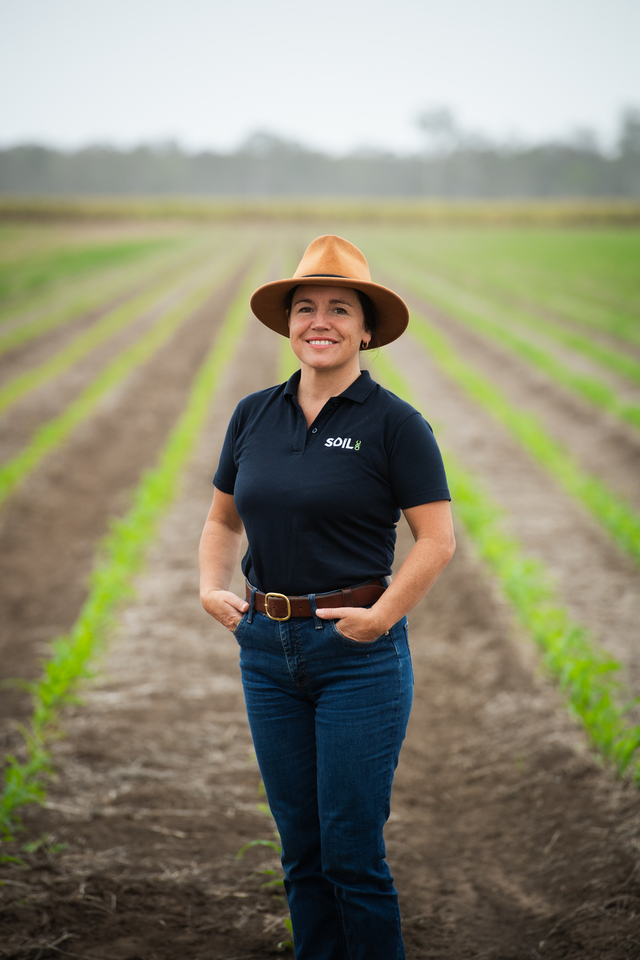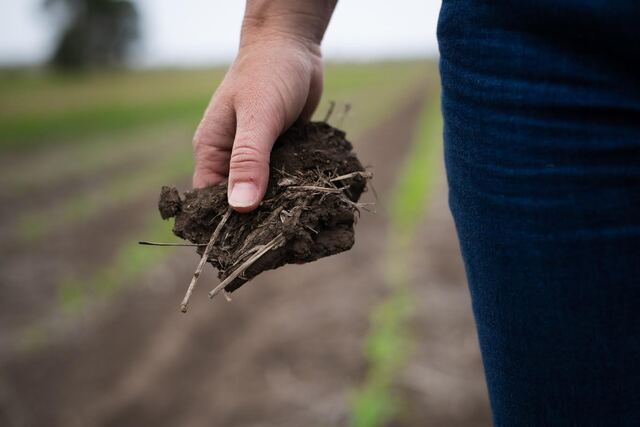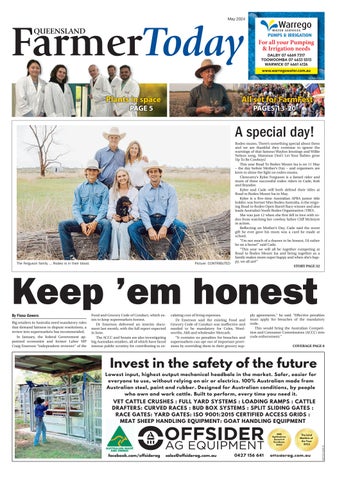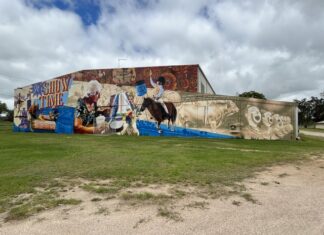A regional university with global impact, Southern Cross University is pioneering agricultural research and education.
From plant breeding to soil testing and courses in regenerative agriculture and veterinary studies, it’s all about farming for the future.
Nestled in a regional town an hour south of the Queensland border, Southern Cross University’s Northern Rivers campus in Lismore is surrounded by cow paddocks, cane fields and macadamia plantations.
Lismore is the University’s hub of agricultural activity, from research labs to science classrooms and commercial activities.
It’s also home to the University’s new Veterinary program.
Plant breeding is a particular strength, including crops such as tea tree and rice.
One of the rice breeding programs is developing rainfed cultivars of antioxidant-rich black rice suitable for growth in sub-tropical Australian climates, reducing water use, methane emissions and supporting local producers.
Funded by AgriFutures Australia, there’s also research aiming to improve and expand Australia’s domestic coffee industry – where 99 per cent of coffee is from imported beans – with varieties better suited to Australian growing conditions and sophisticated consumer palates.
These are just two of the research projects being undertaken by Southern Cross University through the Harvest to Health research cluster, to enhance the sustainable production of functional foods and natural products, driving value for both producers and consumers.
Plant geneticist Professor Tobias Kretzschmar says the University’s research brings together its capacities in plant science, analytical chemistry and complementary medicines to serve industry.
“It’s best seen as a research/industry nexus,” Professor Kretzschmar says. “It’s where we bring industry and science together to find solutions for the industry.” Developing a better understanding of regenerative agriculture Developing holistic indicators of success for grain farmers undertaking regenerative agricultural practices is the focus of a research project led by the University’s Dr Hanabeth Luke.
With the support of the Grains Research and Development Corporation, Southern Cross researchers are conducting an online survey to gather insights on crop farmer perspectives of regenerative agriculture.
Regenerative agriculture techniques have gained popularity in recent years, yet a regulatory or widely accepted definition remains elusive in Australia.
The survey aims to enhance understanding of pertinent farming objectives and their potential impacts on soil, land, business management and farmer wellbeing.
"The aim of this survey is to gather insights on grain grower perceptions and understanding of regenerative agriculture, to help us to develop a useful definition for the grains industry,” says Dr Luke.
Helping farmers improve soil health Southern Cross University is also harnessing its research capabilities to provide tailored advice to farmers regarding their soil health.
The University’s Environmental Analysis Laboratory (EAL) provides a range of analytical services for landowners including agricultural soil testing; general soils and solids testing; waters and other liquids testing; compost, potting mix and landscape soils testing; contamination testing; plant testing; acid sulfate soil and acid rock testing; and a Scanning Electron Microscopy (SEM) Unit.
Landholders across the country can submit their soil samples to EAL for fast, accurate and cost-effective analysis.
Training the next generation of agriculture specialists Through its research strengths and industry connections, Southern Cross is now educating the next generation of agriculture professionals through a world-first Bachelor degree in regenerative agriculture as well as a new Veterinary program, launching in 2025.
The Bachelor of Science with a specialisation in Regenerative Agriculture was designed in collaboration with industry groups and the farming community.
The course covers human ecology, agroecology, regenerative agricultural practices, strategies and soil management.
Students also develop the capacity to produce regenerative strategies for farms and landscapes.
For postgraduate students, a Graduate Certificate and Graduate Diploma of Regenerative Agriculture are also available.
With practical on-farm residentials embedded in degrees, Southern Cross has been ranked number one in Australia for skills development in Agriculture and Environmental Studies in the Good Universities Guide 2024.
The achievement is bolstered by a ranking in the global top 450 universities for Agriculture and Forestry in the QS World University Rankins (Ranking by Subject) 2024.
Fostering regional veterinary professionals As the University now looks to the future, it will expand its agriculture offerings through new courses in Veterinary.
The Bachelor of Veterinary Technology is a three-year degree and will launch in 2025 at the Lismore campus.
Veterinary Technologists assist with the clinical care and welfare of animal patients by taking x-rays, analysing blood and urine samples, administering medication, and performing medical care, plus simple procedures such as dental descaling and polishing.
A Bachelor of Veterinary Medicine (Honours)* is currently in development at the University, slated for launch in 2026.
Executive Dean of the Faculty of Science and Engineering, Professor Jon Hill said the University offered a unique environment for Veterinary.
“The research profile, teaching approach and location combine to create a unique opportunity for veterinary training in the Northern Rivers.
It’s ideal to have graduates that come from the regions and want to stay in the regions – this is where demand is the greatest for veterinary professionals,” he said.
Learn more: scu.edu.au










